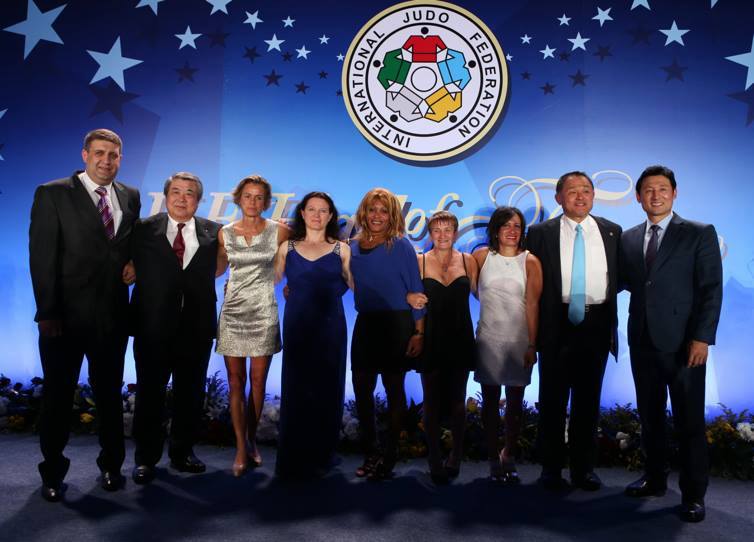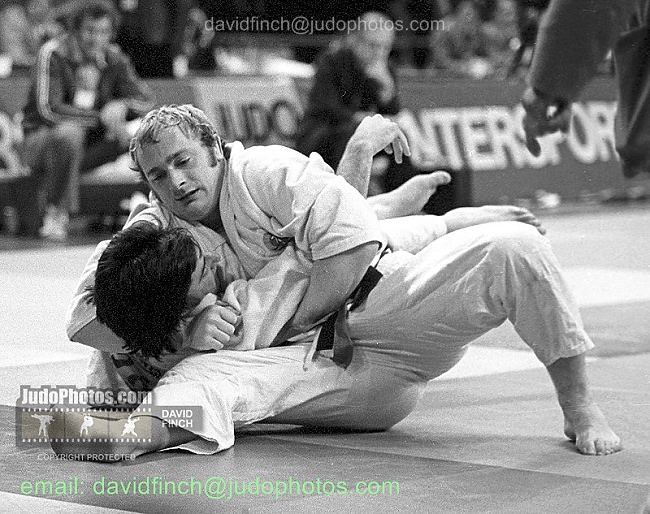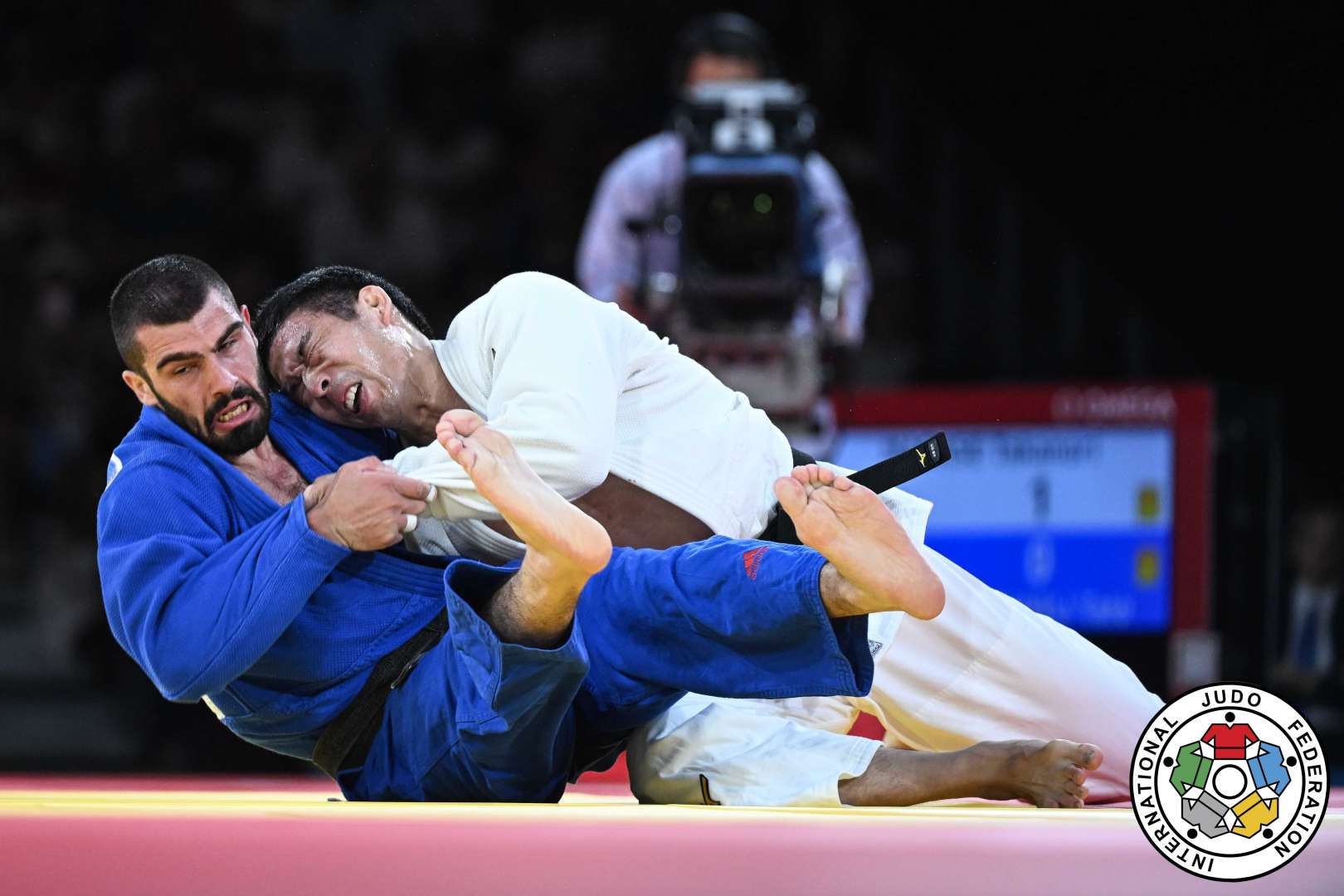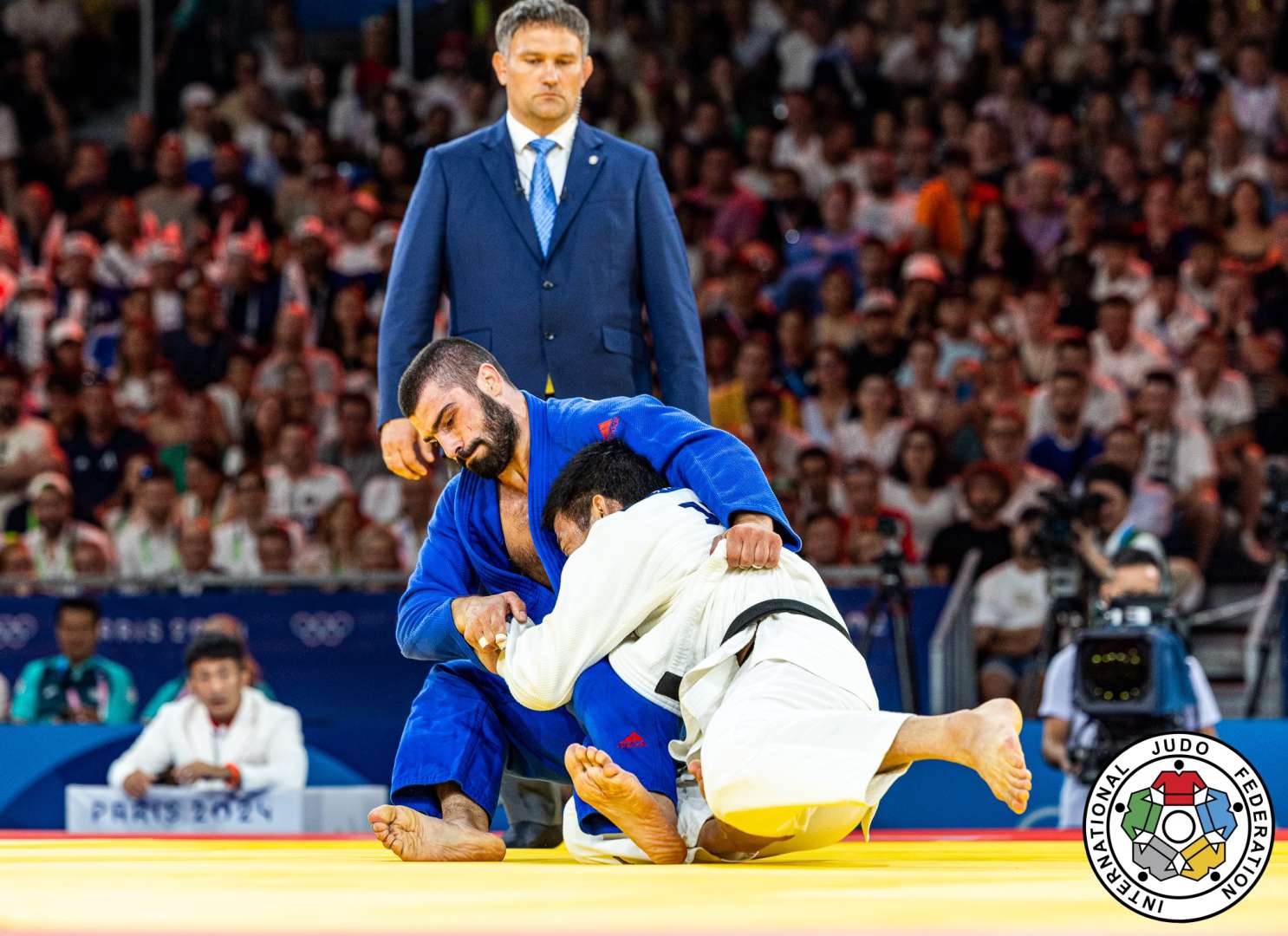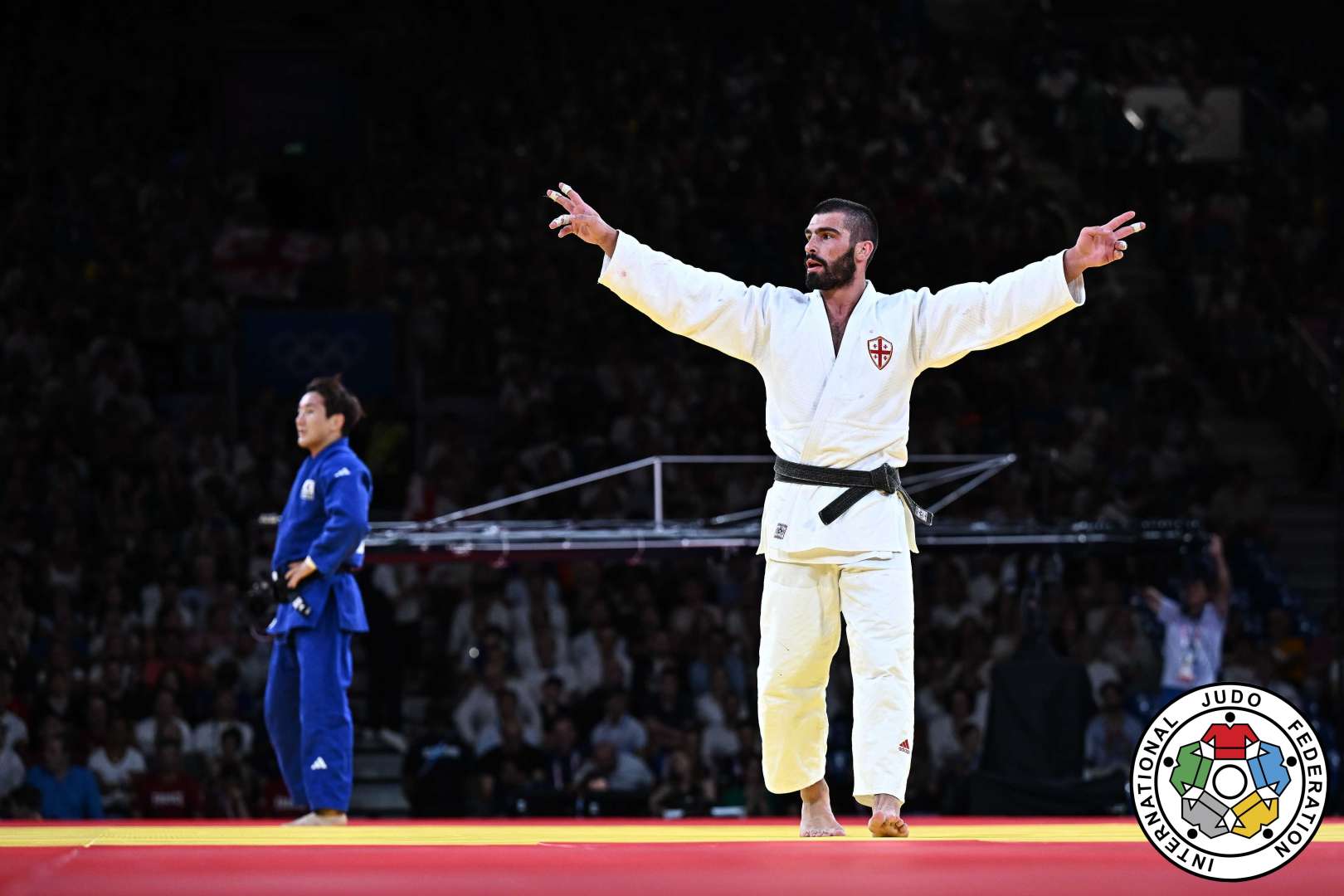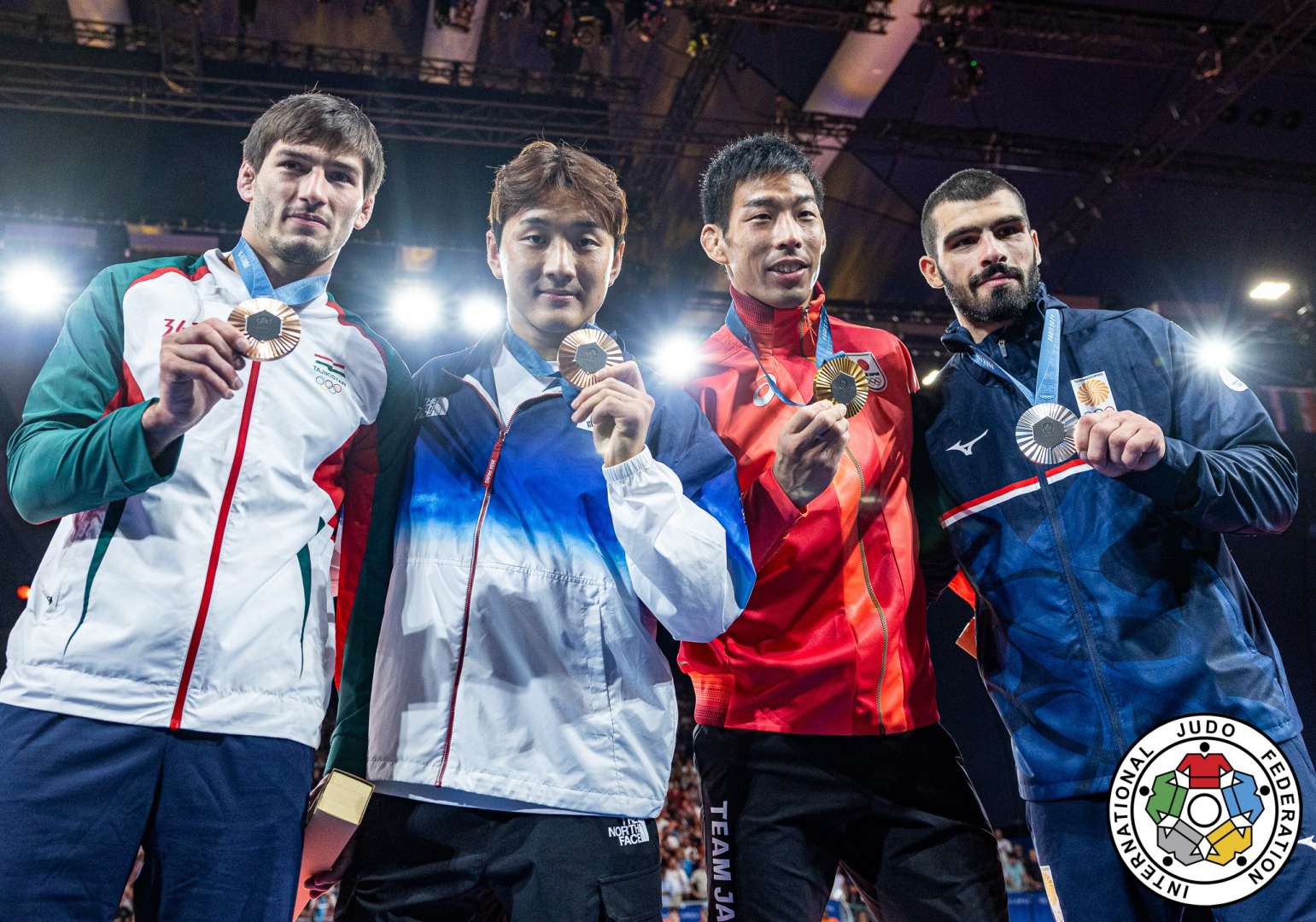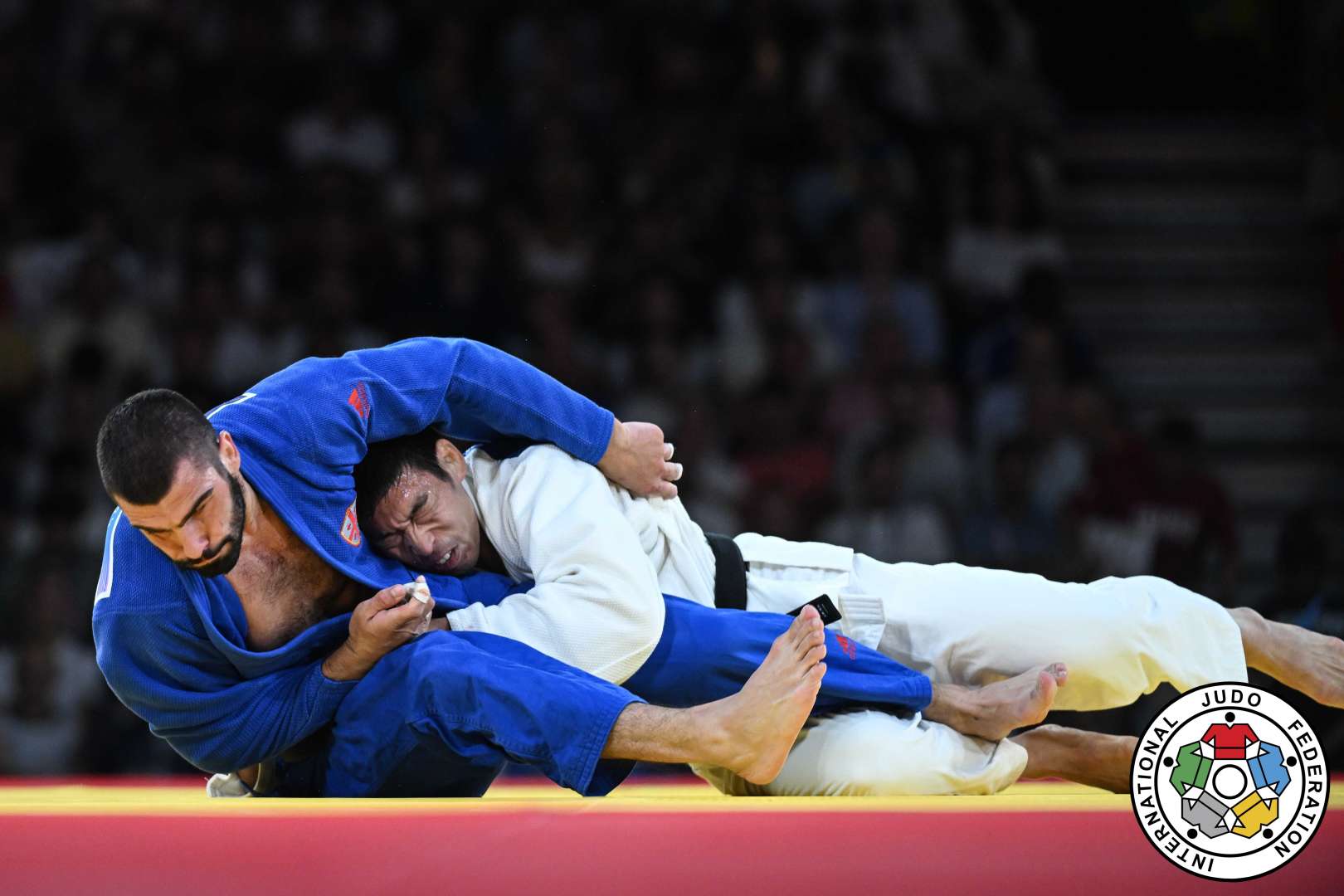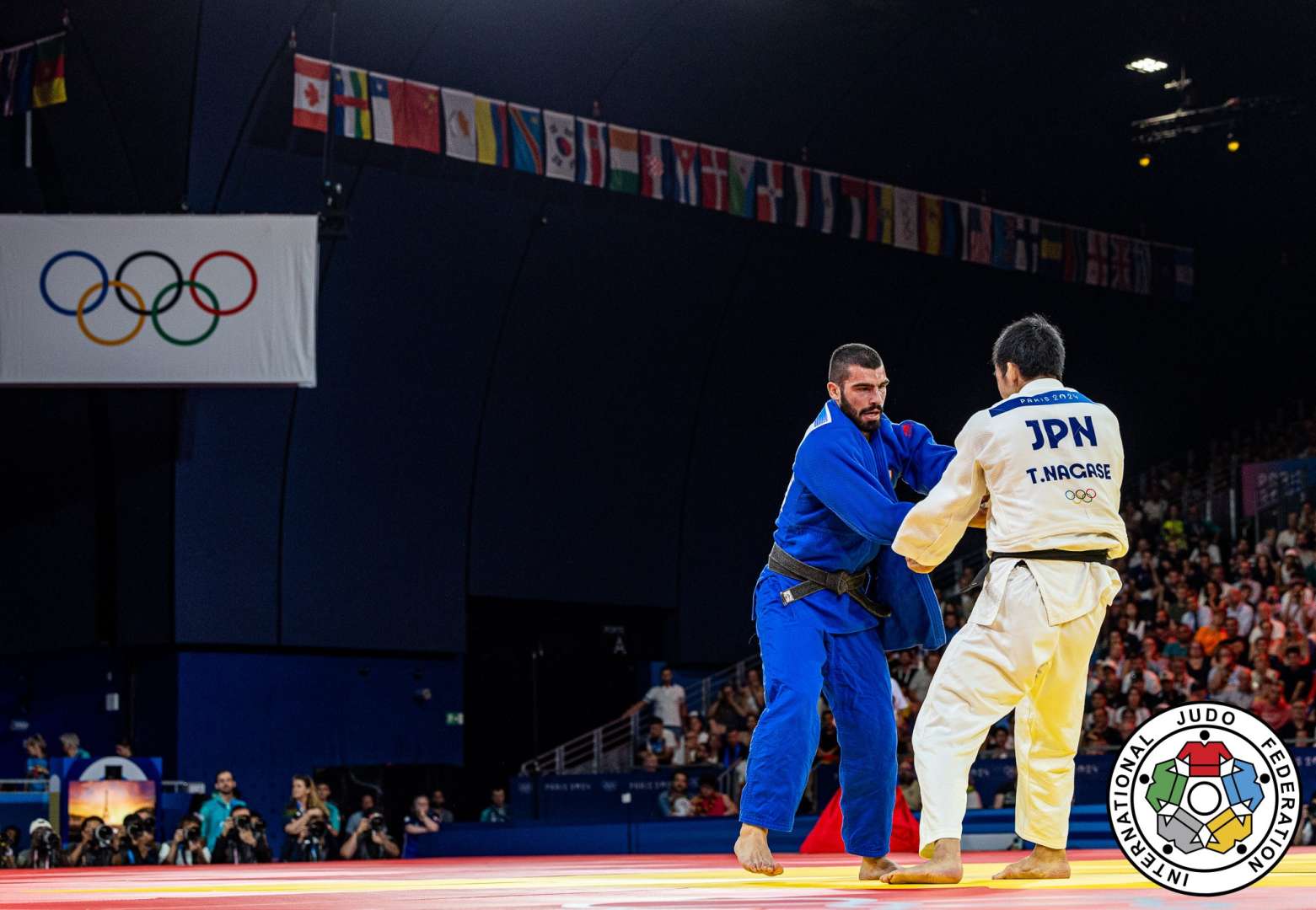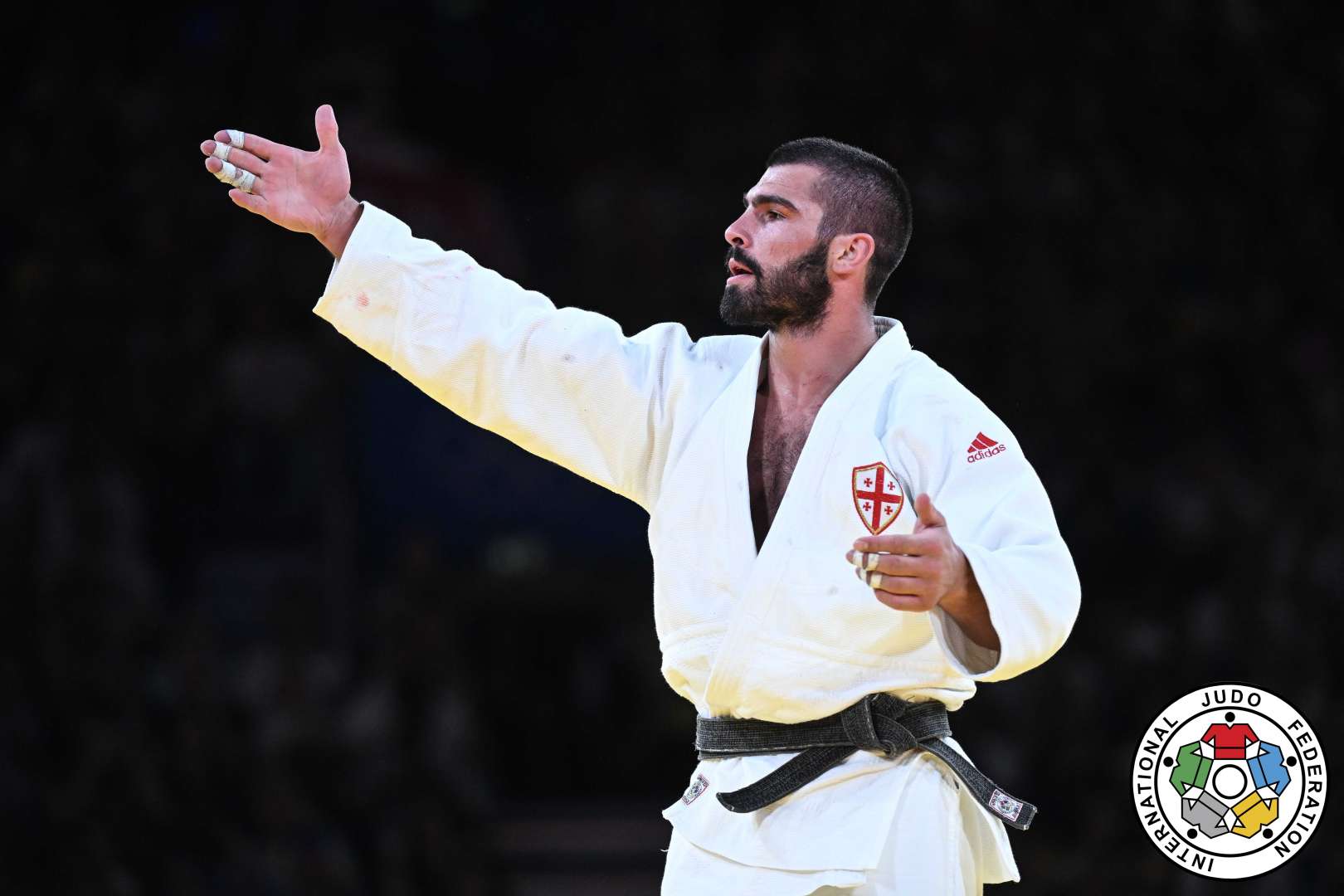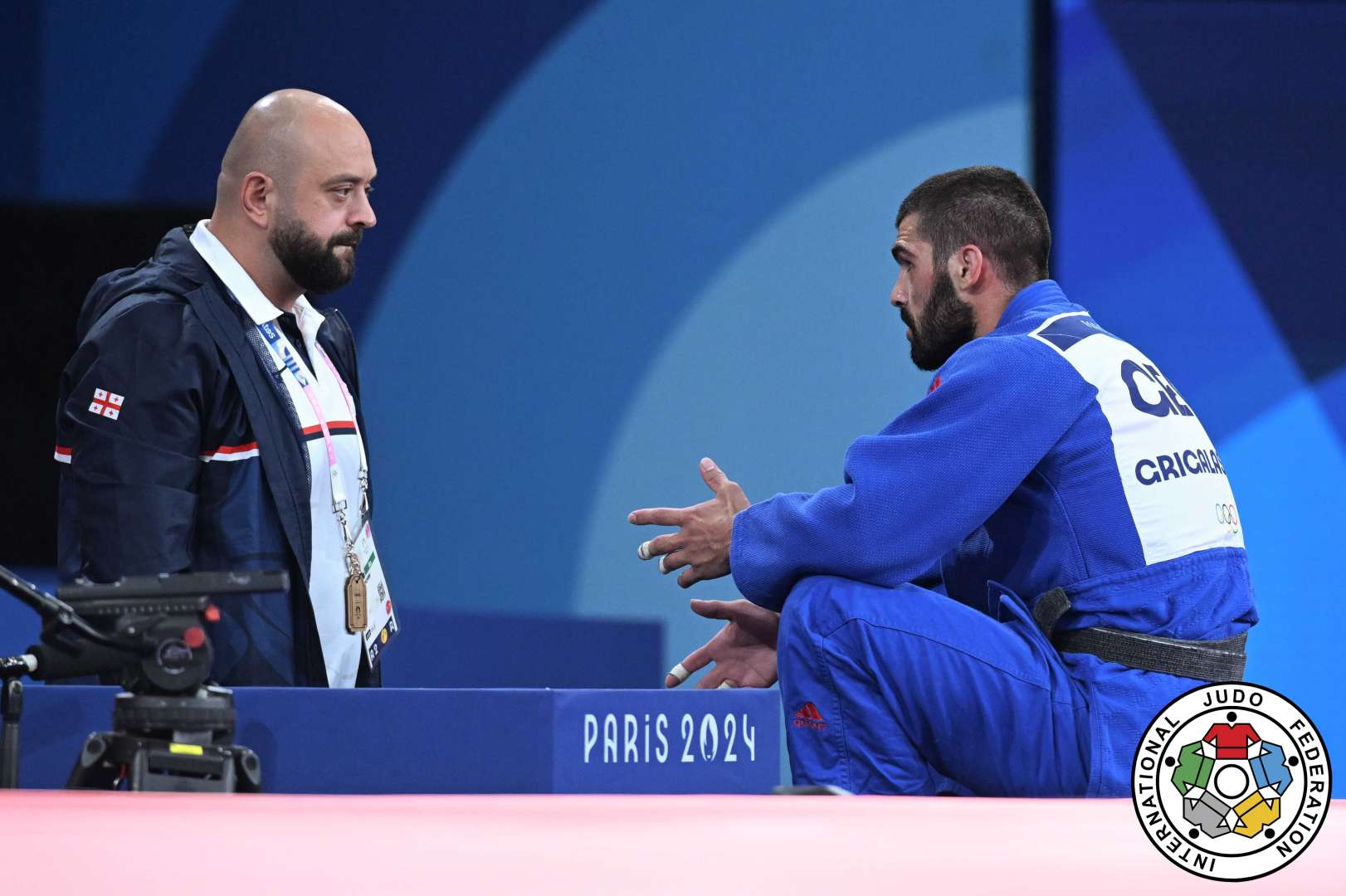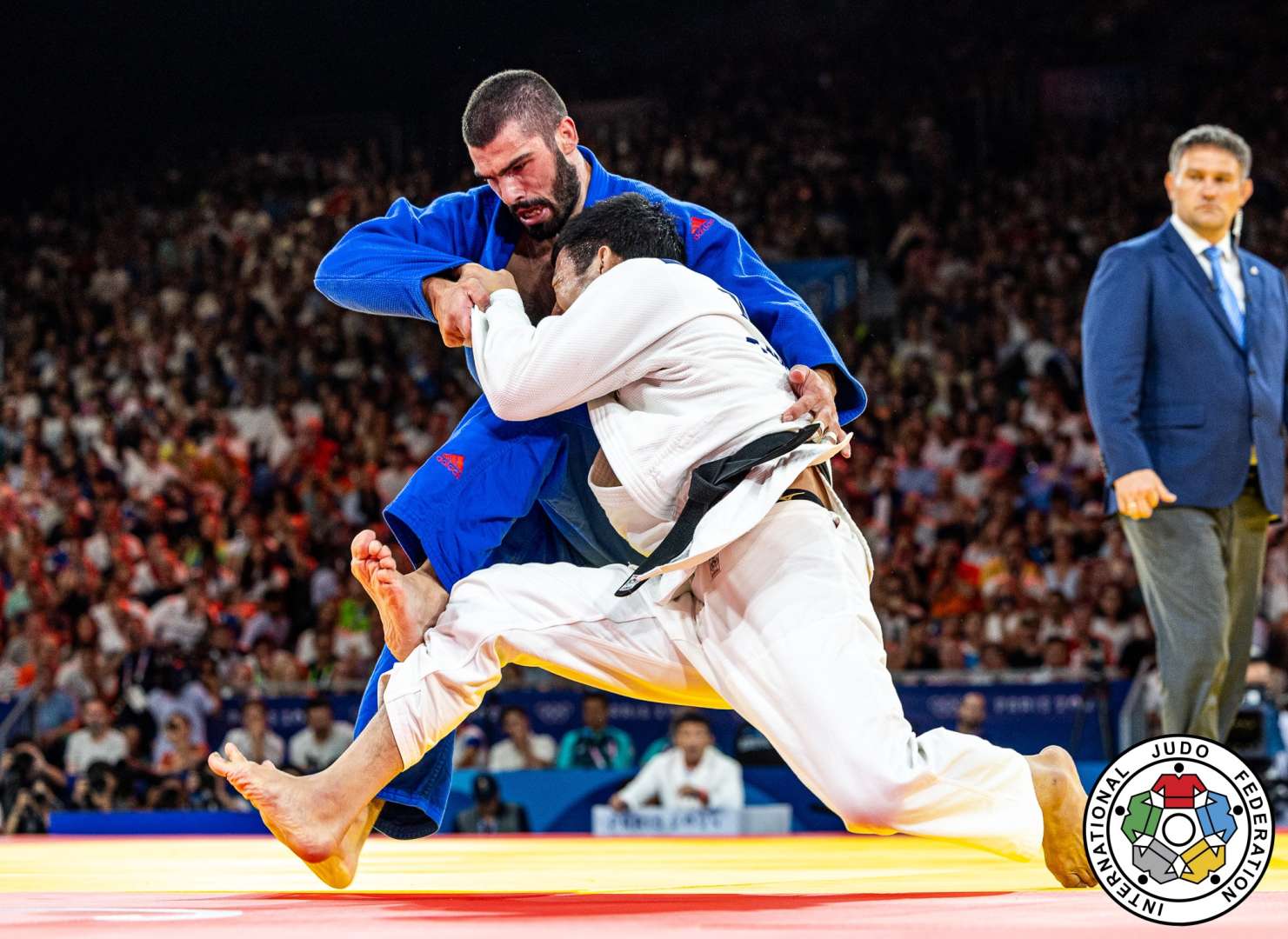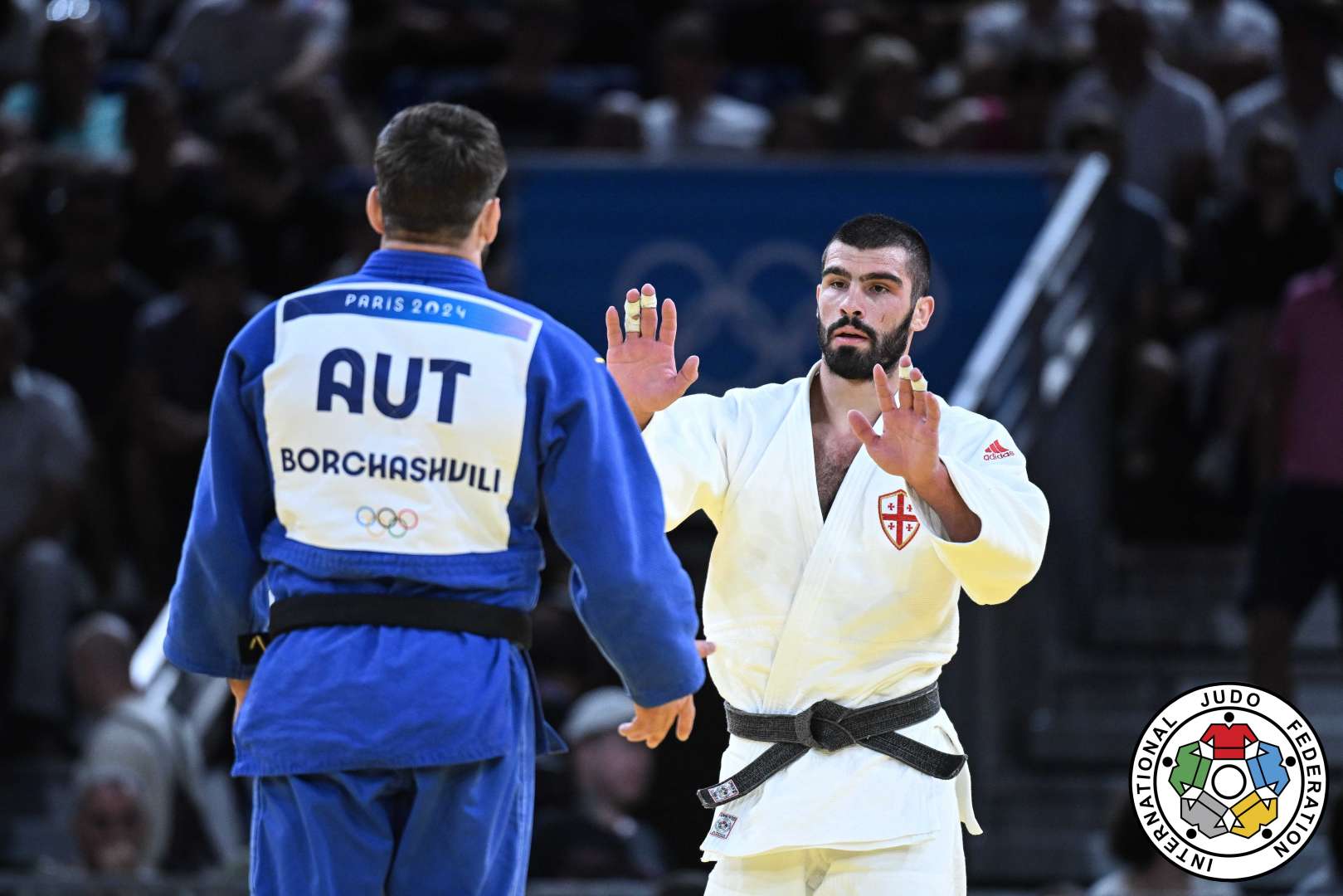Shota Chochishvili shocked the world 50 years ago
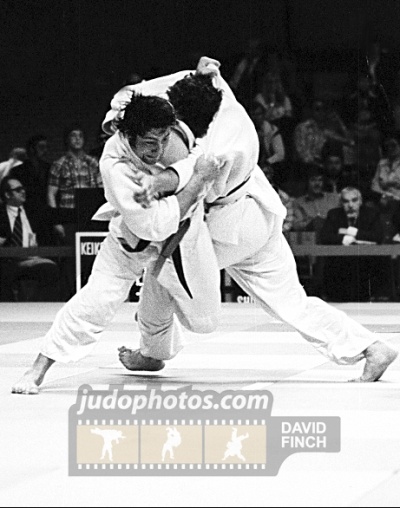
 1 Sep 2022 23:35
1 Sep 2022 23:35
 by JudoCrazy and JudoInside
by JudoCrazy and JudoInside
 David Finch / Judophotos.com
David Finch / Judophotos.com
It was 50 years ago today when a young Georgian named Shota Chochishvili, representing the Soviet Union, won an Olympic gold medal against the odds. The top favorite for the gold medal in the U93kg division at the 1972 Munich Olympics was Japan’s double World Champion Fumio Sasahara (1969 and 1971). In contrast, Chochishvili, only 22 years of age at the time, was a virtual unknown.
Chochishvili’s judo was quite typical of players who hailed from Georgia. His seoi-nage for example, was done from a cross-grip, and he was fully capable of doing the Georgian pick-up that would later be known as the Khabarelli. But his main throw was ura-nage.
He started off well, defeating Du Yong Cha of North Korea in his first match. However, the luck of the draw meant that his next bout would be against the favorite: Sasahara. Chochishvili’s Olympic journey was about to be over almost as soon as it began but the unexpected happened. In a move that stunned the judo world, Chochishvili took a cross-grip, swung Sasahara around and slammed him flat on his back for a huge ippon.
Next up, he faced David Starbrook from Great Britain, who was a World bronze medalist. After facing Japan’s double World Champion, and the top favorite for gold, Chochishvili should have found this match to be relatively easier. But it wasn’t. In a very closely fought battle, the referee’s decision went to Starbrook. And with that, Sasahara’s chance to fight for a bronze medal evaporated.
Under the unusual pool system of the time, it was possible for a player to lose to someone, only to claw their way up to the final, and fight that same player again. And that’s exactly what happened with Chochishvili.
Under today’s rules, after losing to Starbrook, Chochishvili would no longer be in contention for gold. But under 1972 rules, he was able to make his way to the final by winning his next three fights. He beat Pierre Albertini of France, Paul Barth of Australia and James Wooley of the USA to earn the right to face Starbrook again.
The Briton had won all his matches up to that point. Now, all he had to do was to defeat his Soviet opponent one more time. And he very nearly did it, pulling off a slick footsweep that nearly floored Chochishvili. But the young Georgian managed to put his hand down and avoid conceding a score.
It was Chochishvili who came closest to scoring when he launched Starbrook with a massive ura-nage. It was only Starbrook’s keen spatial awareness that prevented him from landing flat on his back. The throw might have earned a koka or yuko in later years but in 1972 only waza-ari and ippon were recognized. So, no score was given.
Starbrook had a new lease of life but strangely, he wasn’t attacking much. It was Chochishvili who maintained the momentum and was always pushing forward. The match went to full time, which back then meant 10 minutes. Through it all, it was clearly Chochishvili who was the aggressor, and in the end, the referee’s decision rightly went to him.
It was only later that Starbrook revealed that he had been fighting under a double handicap. Prior to the competition he had sustained a groin injury and during the competition he had injured his shoulder as well. How much that affected him in the final, nobody knows. But Chochishvili made the most of his golden opportunity for eternal glory, and became Olympic Champion.
That Olympic moment in 1972 was his peak. Chochishvili would not be able to win another major international title after that. He did however manage to win a bronze in both the 1975 World Championships in Vienna and the 1976 Olympics in Montreal. Remarkably, throughout his career Chochishvili never won a European Championship gold.
Still, his remarkable performance at the 1972 Munich Games made him a hero in his home country of Georgia. Chochishvili died of cancer in 2009 and was posthumously inducted into the IJF Hall of Fame in 2015.
Watch original photos at JudoCrazy
 like
like
 share
share
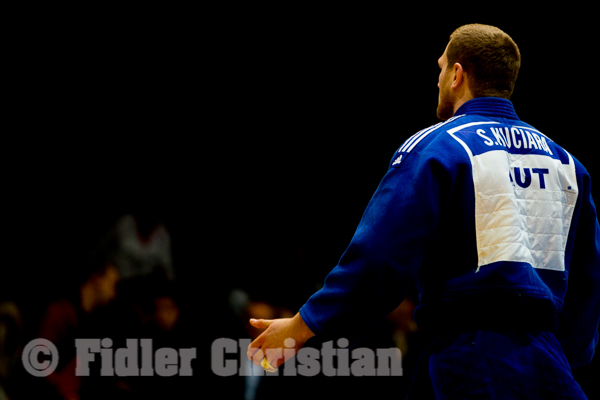
| Result | City | Date |
|---|---|---|
| 2 | Paris | 2024 |
| 1 | Abu Dhabi | 2024 |
| 1 | Zagreb | 2024 |
| 3 | Belgrade | 2023 |
| 2 | Montpellier | 2023 |
